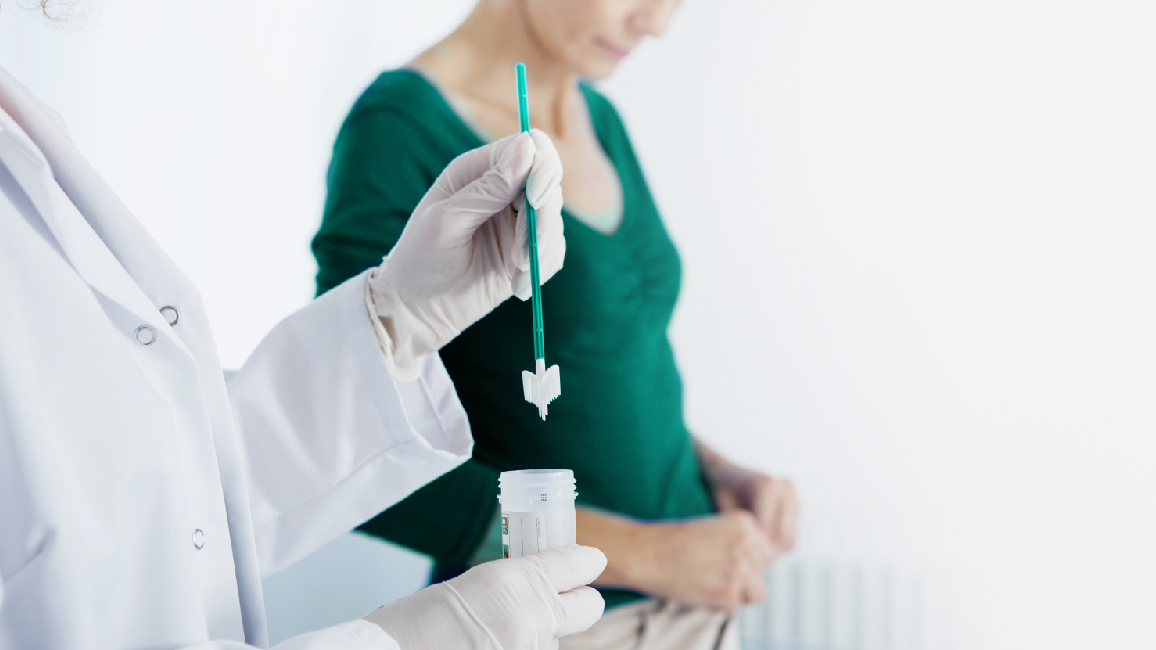Diabetes in Pregnancy
Center : Women Health Center, Internal Medicine Center

Choose to read by topic:
- What is Diabetes
- What is Diabetes in Pregnancy
- How Does Pregnancy Affect Diabetes
- What Causes Diabetes in Pregnancy
- Who's at Risk of Diabetes in Pregnancy
- Diabetes in Pregnancy Symptoms
- Diabetes in Pregnancy Complications
- Diagnosis for Diabetes in Pregnancy
- Treatment for Diabetes in Pregnancy
- Diabetes in Pregnancy Prevention
- Diabetes in Pregnancy Conclusion
- Online Consultation
Diabetes in pregnancy is a condition in which the blood sugar levels become high during pregnancy. The condition often affects both the mother's and the child’s health. Poor control of diabetes can lead to other complications. It is recommended that you seek doctor consultation. In this article, we will provide you with information about diabetes in pregnancy (gestational pregnancy or GDM). Let's begin by learning more about diabetes.
What is Diabetes
Diabetes is a condition in which the body cannot produce enough insulin or cannot use it properly. Insulin is a hormone that controls blood sugar levels. It helps sugar in the blood get into the muscles or tissues. People with diabetes have high blood sugar levels because insulin cannot function properly, leaving sugar (glucose) in the blood. The condition of high blood sugar is called hyperglycemia.
Diabetes can lead to other complications, such as neurological deficits and damage to blood vessels in the eyes. The condition can also develop in pregnant women. Diabetes in pregnancy can result in serious complications, such as birth defects in a growing baby.
Types of Diabetes
Diabetes can be divided into three types:
- Type I Diabetes. Type I Diabetes is an autoimmune disease which is common in children. The body’s immune system damages the cells in the pancreas that produce insulin, resulting in insulin deficiency.
- Type II Diabetes. Type II Diabetes is more common. The body cannot produce enough insulin or cannot make use of insulin, so the sugar level is building up in the blood. Insulin resistance is common in this type.
- Diabetes in pregnancy (gestational diabetes). This is a condition in which the blood sugar level rises up in a period of pregnancy. It also includes other diabetic symptoms in women who have no history of diabetes.
What is Diabetes in Pregnancy (Gestational Diabetes)
What is diabetes in pregnancy?
Gestational diabetes, or diabetes in pregnancy, is a condition in which the blood sugar is high during a period of pregnancy. It often occurs in the second or third trimester, even though it can happen at any stage of pregnancy. The condition usually disappears after giving birth.
This type of diabetes usually happens when the body cannot make use of insulin or produce enough insulin to match the extra need during pregnancy. This results in a rise in blood sugar (glucose). Diabetes in pregnancy is quite common. The condition can lead to other complications affecting both the mother's and child’s health. The risk of developing further complications is usually lower if the condition is detected at an early stage.
How Does Pregnancy Affect Diabetes
Pregnancy and Diabetes, the correlation.
- Difficulty in controlling blood sugar, which affects the condition of high blood sugar and DKA diabetic ketoacidosis.
- Diabetes in pregnancy can lead to diabetic retinopathy.
- Increased protein leakage in urine in a period of pregnancy.
- Hypertension.
What Causes Diabetes in Pregnancy
The causes of diabetes in pregnancy.
In a period of pregnancy, it is common for the mother to have an increased appetite. In normal conditions, the pancreas releases insulin, the hormone that helps regulate blood sugar, when you eat food. During pregnancy, the placenta produces hormones that cause the level of glucose in the blood to rise. Hence, the condition is called hyperglycemia. The pancreas cannot produce enough insulin to keep up with the increased blood sugar level, resulting in diabetes in pregnancy. Sometimes, the body may just stop making use of insulin, which can happen at any stage of pregnancy. The increased level of blood sugar results in gestational diabetes, or diabetes in pregnancy.
Who's at Risk of Diabetes in Pregnancy
Diabetes in pregnancy is not caused by a single cause. There are several factors contributing to the condition. Some examples of the aforementioned factors are:
- People over the age of 35.
- Being overweight before pregnancy (BMI > 27 kg/m2)
- A history of gestational diabetes in the family.
- A history of gestational diabetes in a previous pregnancy.
- A presence of sugar in the urine sample.
- A history of child delivery, with the child weighing 4000 grams or more.
- A history of miscarriage.
Diabetes in Pregnancy Symptoms
Most of the time, diabetes in pregnancy shows no apparent symptoms. It is usually detected when the blood sugar is tested during screening for gestational diabetes. However, it is possible for women with gestational diabetes to develop hyperglycemia symptoms, such as:
- a dry mouth
- increased thirst
- tiredness
- needing to pee more often than usual
- blurred eyesight
- genital itching, sweaty or thrush
Diabetes in Pregnancy Complications
Diabetes in pregnancy can result in other complications which mostly affect the mother and the baby. The complications of gestational diabetes are described as below:
Effects on pregnancy woman
The condition can affect pregnant women and lead to other conditions, such as:
- Eclampsia (Toxemia of pregnancy)
- Pyelonephritis
- Polyhydramnios
- A higher risk of developing hypertension.
- A higher risk of infection and need of c-section.
Effects on baby
Diabetes in pregnancy can directly affect the child. Examples of the effects on the baby are:
- A higher mortality rate, especially in cases of inappropriate treatments.
- A higher risk of miscarriage due to a poor diabetic control especially in the first trimester.
- Birth defects. (The risk of developing birth defects is 2-3 times more than normal pregnancy.)
- Macrosomia is a condition in which a newborn is much larger than average. The condition is the most common among other defects. It occurs when the child gets excessive glucose or amino acids from the mother.
- Women with a long-lasting history of diabetes and the condition of microangiopathy can result in an abnormally small child. The baby’s growth rate can be slow as well.
- Miscarriage.
- Trouble breathing.
- Hypoglycemia.
- Hypocalcemia and hypomagnesemia.
- Increased blood viscosity.
- Newborn jaundice.
- Cardiomegaly. (In some cases, the condition can lead to heart failure and the risk of having the infection.)
Women who have gestational diabetes develop a higher chance of miscarriage if they do not get proper treatment. Furthermore, it is also possible to develop other complications that affect the child, such as, macrosomia, hypoglycemia, polycythemia, hypocalcemia, and hyperbilirubinemia.
Diagnosis for Diabetes in Pregnancy
Diabetes in pregnancy is manageable. The diagnosis is usually determined in the early stage of pregnancy. Here are some methods used to diagnose the condition.
GCT
GCT is performed by drinking the solution with 50 grams of glucose. Waiting for an hour and taking the blood sample to determine the blood sugar level. This method does not require fasting.
- If the blood sugar level is lower than 140 mg./dl, it is interpreted as normal. It is suggested that the patient continues their antenatal care. The screening test for diabetes should be repeated at the 24-28 weeks of pregnancy.
- If the blood sugar level is equal to or higher than 140 mg./dl., it is interpreted as abnormal. An additional test to confirm the condition is suggested. This time, the test will involve drinking 100 grams of glucose.
OGTT
The steps of OGTT are:
- Fasting. The patient must fast for at least 8 hours, but not more than 14 hours prior to the test.
- The blood sugar test is performed after fasting for a night. The time that the test is taken is counted as the zero hour. The patient will then drink the solution of 100 grams of glucose. The blood sample will be drawn again to test blood sugar level at the 1, 2, and 3 hours consecutively after drinking the solution.
Treatment for Diabetes in Pregnancy
Diabetes in pregnancy is manageable. Some examples of treatments include:
Diet Change
A healthy diet is highly recommended. The mother should focus on eating fruits, vegetables, whole grains, and lean protein. Foods that are high in fiber and low in fat are suggested. The mother should refrain from eating and drinking highly refined carbohydrates, including sweets.
Blood Sugar Monitoring
It is important for the mother to monitor her blood sugar level. Usually, the test should be performed first thing in the morning and after meals. This method can help the mother keep track of her blood sugar and maintain it in a healthy range.
Exercise
Regular exercise plays a major role in maintaining blood sugar levels. Exercise is beneficial not only during pregnancy but also afterward. Exercises can lower the blood sugar level. Exercises are generally advised to maintain a good fitness level and relieve some of the discomforts of pregnancy, such as, muscle cramps and back pain.
Medication
Medication may be prescribed by the doctor, depending on the condition. Generally, the doctor will prescribe the medication if diet changes and exercise don’t improve the condition. A small amount of insulin may be needed to lower the blood sugar level. It is suggested that you consult your doctor about medications.
Diabetes in Pregnancy Prevention
How to prevent diabetes in pregnancy? Type 2 diabetes can be prevented mostly by lifestyle adjustments. Here are examples of how you can take care of yourself regarding the issue:
- Maintain a healthy weight.
- Eating healthy foods, such as fiber-rich foods, fruits, and vegetables.
- Avoid eating high fat foods and sweets.
- Exercise regularly.
Diabetes in Pregnancy Conclusion
Diabetes in pregnancy is a condition in which the blood sugar level increases during a period of pregnancy. There are no apparent signs or symptoms of this condition. However, some pregnant women may experience hypoglycemia symptoms, such as, dry mouth, increased thirst, and tiredness. The screening test for gestational diabetes involves taking a blood sample to check the blood sugar level. The condition is preventable by maintaining a healthy weight and eating healthy foods. If you are experiencing signs and symptoms of the condition, you should consult with the doctor. In case you live in Bangkok, Nakornthon Hospital’s Women Health Center is another great choice to consider. The hospital offers you a wide range of treatments and precise diagnoses performed by experienced specialists.
Online Consultation
Article of Women Health Center, Internal Medicine Center





